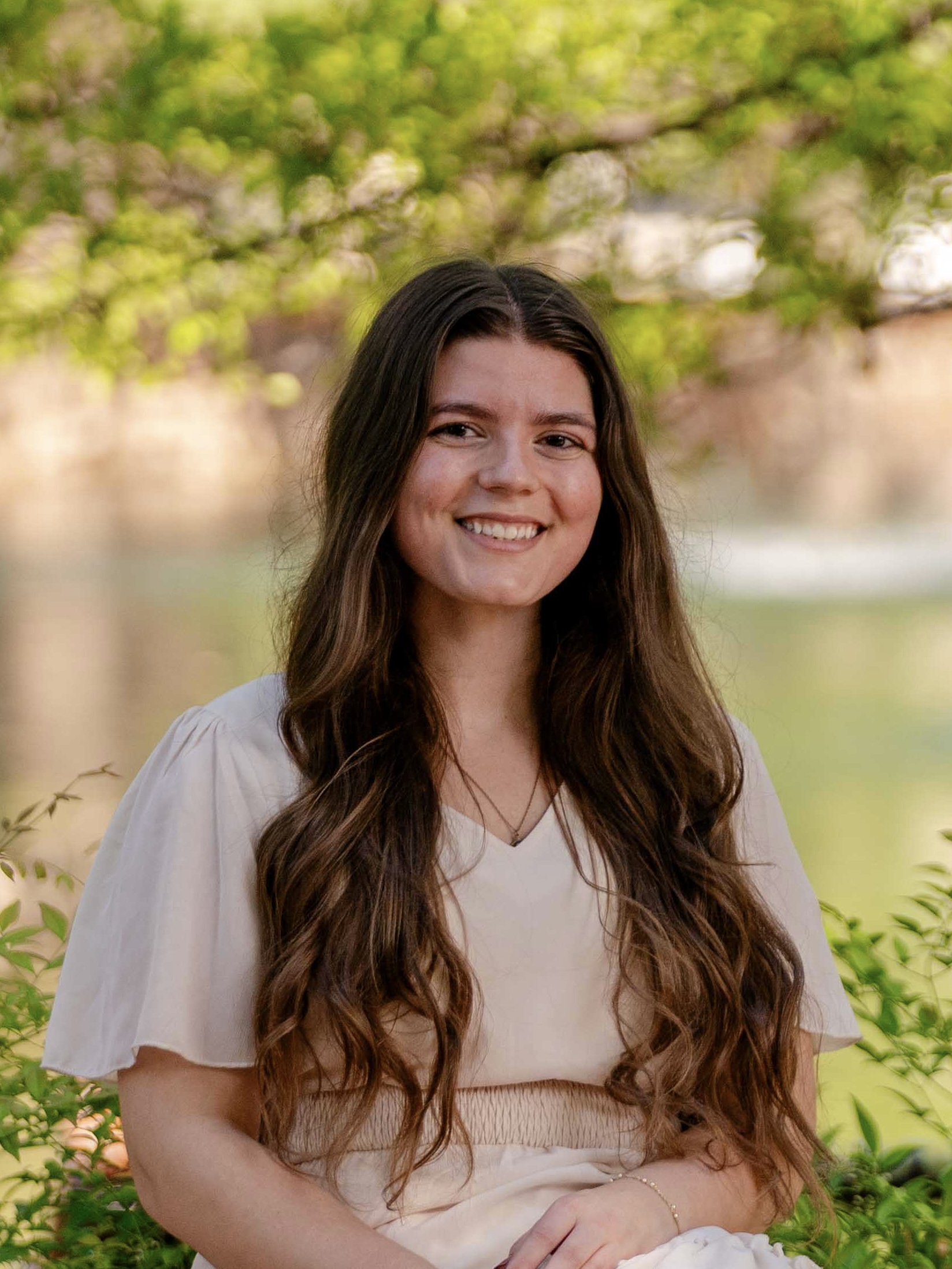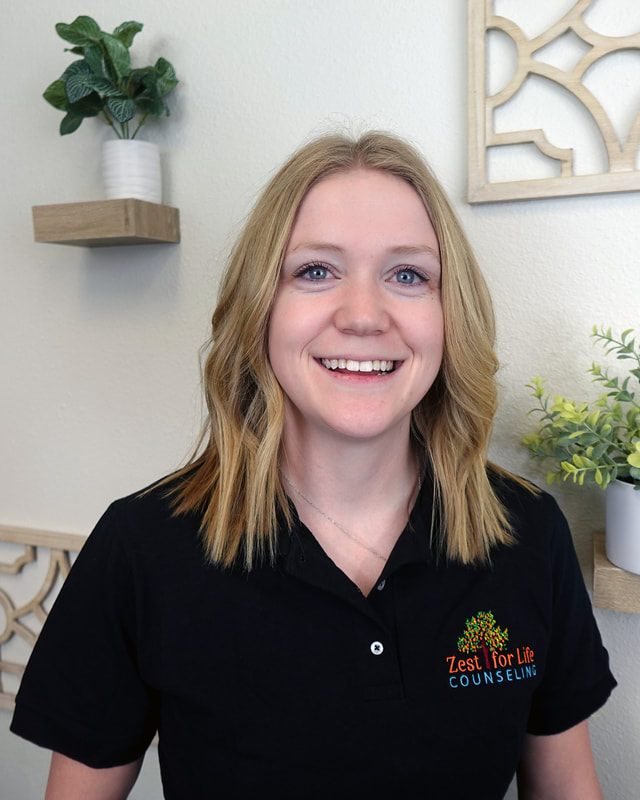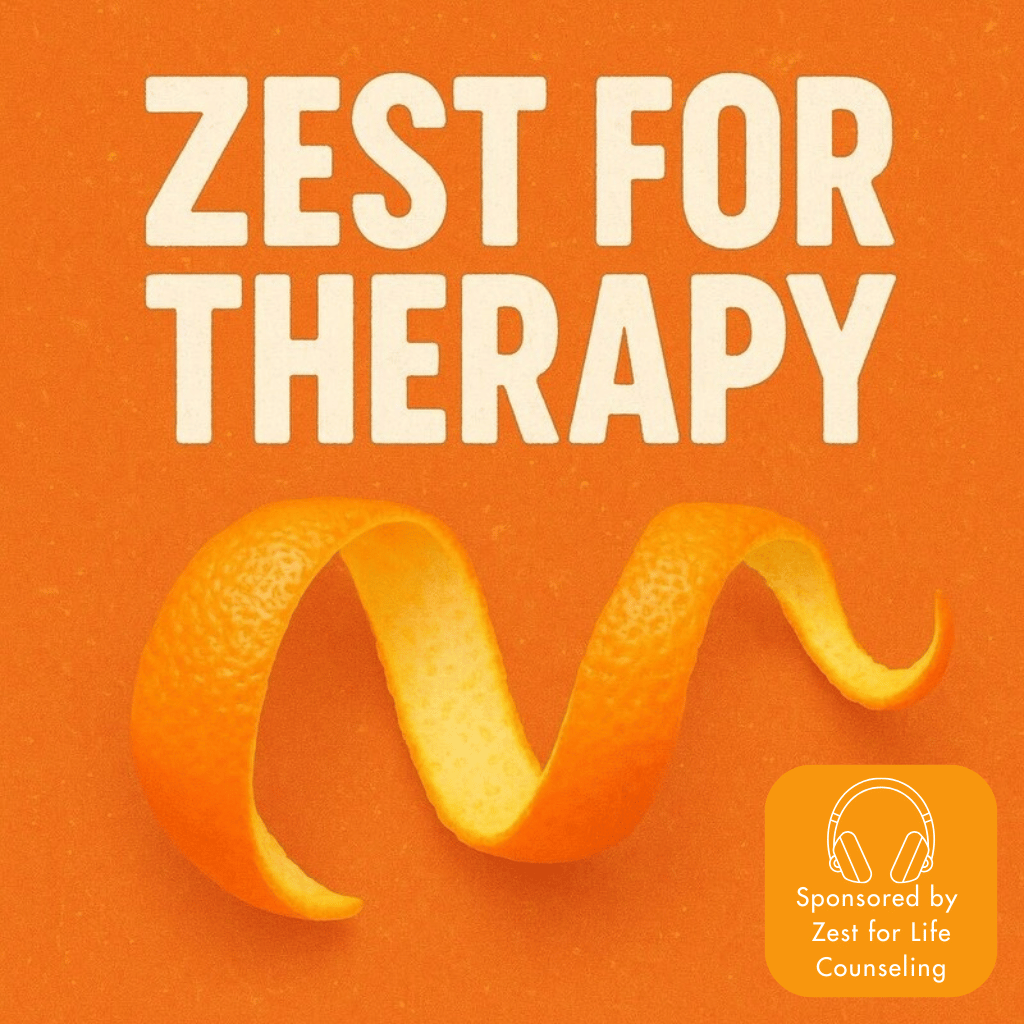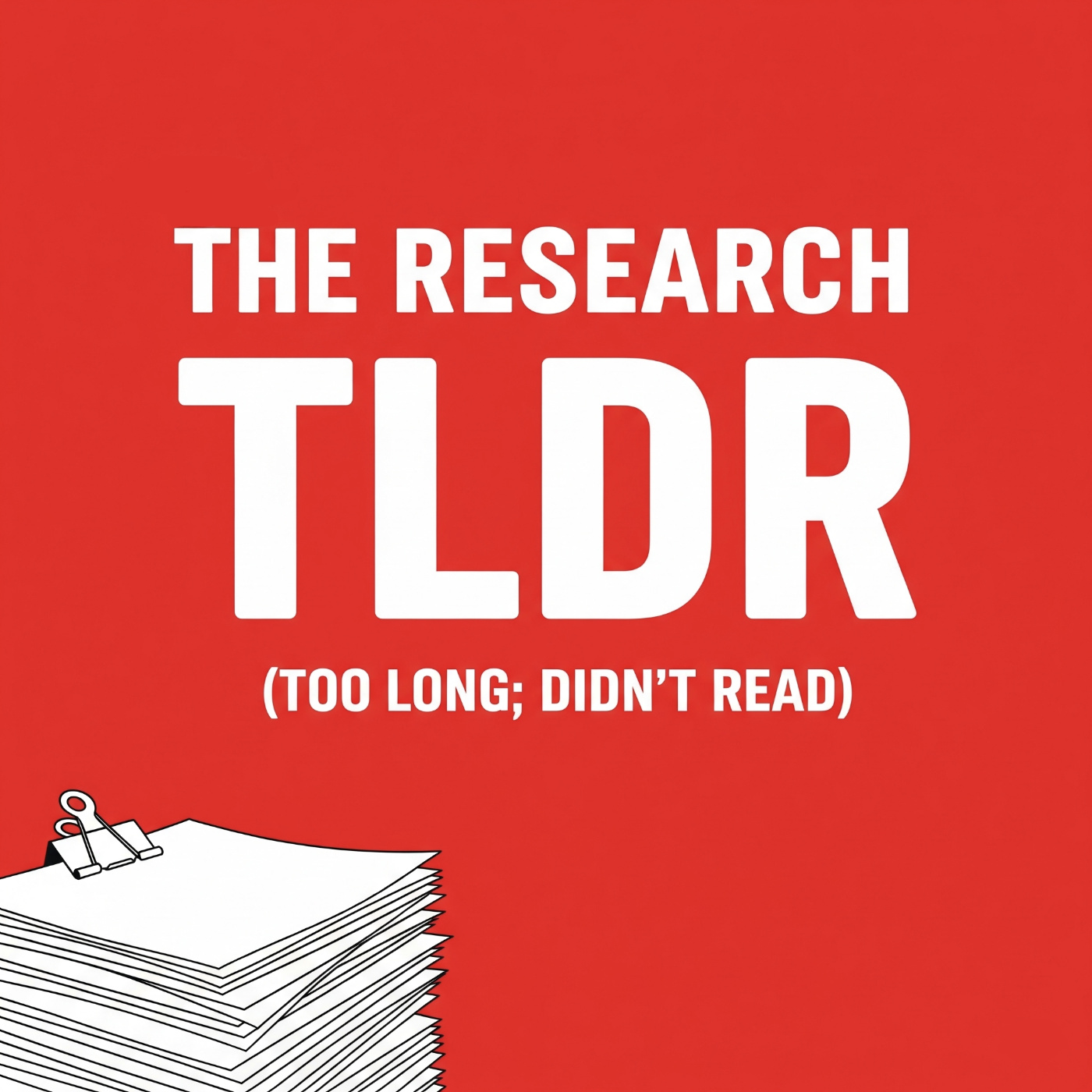Episode Transcript
[00:00:00] Speaker A: Foreign.
[00:00:14] Speaker B: Welcome back to the Zest for Therapy podcast. We are your Hosts, Celeste Webster, MSWI, Courtney Dohmen AM FT and Cole Childers, MSWI. We are here for part two of Private Practice vs Agency weighing the Pros and Cons. We hope that you enjoy this conversation as much as we did.
[00:00:33] Speaker C: When a new grad is having the opportunity to look for somewhere that they think they would be a good fit for each of your own places. So your private practice and the agency you're at, what would you recommend to these new grads as steps to get hired, to be a good applicant, to be someone you want to hire, or.
[00:00:57] Speaker B: To get into private practice?
[00:00:58] Speaker A: Practice. Oh, yes, because I'm in a situation where a lot of individuals, not a lot, but some choose to begin an agency. Like, you know, if I want residual income, I'm going to hire a bunch of new grads and have them working for me. But that, that changes my job.
[00:01:15] Speaker D: It does.
[00:01:16] Speaker A: I don't want to supervise you.
[00:01:19] Speaker D: You don't.
[00:01:22] Speaker A: My passion is doing the work, and so I have the freedom to do that.
I could build an agency, have some under me, and I choose not to.
I have colleagues who have done that and are doing well. I have one that has built her entire practice on telehealth and has five or six clinicians under her and she doesn't have to work anymore. But that's not why I went into it. Right. I'm passionate about what I do.
So. So that's. But you get to choose, right? So I wouldn't hire anyone, actually.
And the way to get to where I am is quit your job at the agency and just start win your.
[00:02:05] Speaker B: License when you're licensed.
[00:02:07] Speaker A: Get fully licensed, fully trained, and follow your passion. Right.
We're not going to go down the mud, coach, but be motivated to continue to learn. That's one thing I learned love about my job too, is that I can become an expert in anything that piques my interest and I can get the training I want and go down that rabbit hole. And you'll find that you change as your clients come to you as well. Right. I will go home and read a book before I see you tomorrow. Right. It's like I will go home and study based on the clientele that I have and I will pick the CEUs that I want that will broaden my skill set in the areas that I'm interested in. So, you know, 100% get licensed. That's the path for us.
[00:03:05] Speaker E: When I think for us, you know, again, we specialize in something that not a lot of people specialize in our state. And so I'm not interviewing therapists that come in with infant early childhood mental health experience experience.
They are coming in with an interest in it, a desire to learn.
And so what I'm really looking for is, you know, a passion, a connection to the work, a desire to go through some pretty intense learning experiences and want to work with the population that we work with with. And so our, you know, interview process is really looking for those qualities.
And our team is very important. I think that's another benefit of working at an organization, especially one like the Children's Center, Utah. We have a very close knit team.
We all genuinely enjoy each other. We want, we are champions of each other. We want everyone to do well. We're committed to providing the best service possible and helping each other along the way. And so we really. I'm looking for someone that can fit in that, that is looking for that team based approach that recognizes that relationships are the pathway to change, especially for infants and really young children through their attachment relationships, but also with each other and really want to engage in that learning and be open to those experiences.
They're the ones that do the best at our organization. And that's what I'm looking for when we're in an interview process because I'm not typically getting someone coming in going. I have this many years of working with infants and very young children because our training programs in the area and all of that, they don't focus on that age.
And so we know that we're going to provide that learning environment for anybody that comes to work with us, even if they're fully licensed.
And we're open to that and we're committed to professional development and have so many pathways for that. But I'm looking for those qualities for someone coming in and interviewing with us.
[00:05:25] Speaker C: I love to hear that, especially from the. I see too often this is an over exaggeration, but we're looking for new grads with 10 years of experience in the hiring world. But it's a lot of the attitude and you can see the growth potential to see success in someone.
[00:05:41] Speaker E: I really like that.
[00:05:42] Speaker A: Thank you.
[00:05:44] Speaker B: Honestly, you kind of answered this a little bit. So maybe like segueing a little over to Michelle, like what kind of person is suited to ditch it all and do private practice? Because you said a good person that's suited for your agency is like just willingness to learn because it is so niche and you do that training and that's so great.
What's the flip Side, again, I think similar.
[00:06:06] Speaker A: It's. It's that you want to be continuously learning. Right. You have to have the internal motivation to be able to be successful in your practice.
You have to be driven internally because there's no external checks, you know, except Doppel.
[00:06:25] Speaker B: There's that. Yeah.
[00:06:26] Speaker A: You know, and so. So that's. I think, really, you have to be self motivated or it won't be a successful private practice.
[00:06:36] Speaker B: Yeah.
[00:06:37] Speaker D: Yeah. And I think that almost speaks to Michelle, what you mentioned earlier, and Melinda, too. There's different ways to grow based on the kind of environment that you're in. Because, Michelle, you're saying, like, I love to do the work, like doing the therapy, but also as a business owner, you have a little bit of the business side. Like, you grow into a little bit of, okay, making sure you can get your own space and you find a network of people and you are maybe a little bit more focused on those things. And Melinda, you're saying being part of an agency also means that you have kind of some organizational things that you can adjust into as well, like teaching and training and management.
I think that's another important thing for new therapists to consider. And you might not know this when you first start out, because I certainly didn't.
Is what kind of like, do you want to just do therapy or are you really looking for therapy? Plus a mix of other amazing things that are part of the clinical field but that aren't necessarily therapy. And that's where I found myself. My first. First job out of grad school is more like, like a private practice. Like, just like, if you can imagine, just like a private practice. Like, that is. That was the culture and I loved it and it was great. But, like, there wasn't a lot of, like, group trainings, not a lot of group things happening. I wasn't really seeing anybody outside of my clients and day in and day out. And I also have this other side of me that I just. I love research, I love talking with my co workers. That's what I love the most about being in a grad program was my cohort. And so shifting into a place that incorporates more of the agency feel of, okay, there are trainings. We can do a podcast like this. We can coordinate with people in the community.
I realized, oh, there's like a part of me that was like, really looking for that. But I would have had no idea until I got out there and I learned, oh, okay.
Long days at an office where I mostly talk to myself and my clients wasn't a good Fit long term, it was great in the short term. And I had so many benefits, like we've all mentioned before. But I think that's something else to keep in mind too, of. Be open to, like, be aware of your own experiences and adjust as needed.
That's not a bad thing.
If you start off at an agency and you're like, wow, this really isn't a good fit. It doesn't mean, like, you're a bad therapist. It might just be not a good fit. Or you start off somewhere that's very streamlined or more like a private practice. And that might not be a good fit for one reason or another.
[00:09:21] Speaker A: I think.
Creating what you need. Right.
So like I said, I have 10 clinicians in the building with me. Yes. We are in our room with our clients all day.
[00:09:33] Speaker D: Yes.
[00:09:35] Speaker A: Once a week, we all go to lunch.
[00:09:37] Speaker D: I love that.
[00:09:37] Speaker A: We're all also, you know, easily accessible for consultations and scheduling, those kinds of things. I had two today, in fact, with different therapists on when we get stuck. So it's a weird sensation of, yes, I'm on my own, but actually you're not.
And I know that you're really good at this, so let's. Can you talk? Right. So you create what you need where you are. An agency may provide a lot of that for structure.
[00:10:06] Speaker D: Yeah.
[00:10:06] Speaker A: But if you choose to go on your own, you have to provide that. You figure out what you need to be successful and, you know, it may or may not be your thing.
[00:10:15] Speaker D: Exactly. I. Yeah, I love that. One of my professors would always say, don't be an island. Don't be an island.
Don't practice in isolation.
[00:10:26] Speaker E: I like what you said about, you know, that you were discovering kind of what was working for you or what you needed. I think for new grads. We're all going to come out of grad school thinking this is what I want to do.
Because grad school kind of asked that of us. Right, right. What is it that you want in your future career and take the classes or get the experience that. That match that, and then when you are graduated, like, go forth and do. Right. And I think that, you know, it is a discovery process. So allowing yourself to be open to whatever experiences you have and whatever learning you have and where you end up might be kind of surprising compared to where you started. Like, there are, you know, clinicians in our organization that, you know, want to do the clinical work, don't have, you know, as much interest in some of the other things that we do and what really feeds them. And what really fills their passion is working with kids and families. And then there's other clinicians that are on different trajectory saying, like, I love working with kids and families, and I want additional things. I do want to lean into research or I do want to lean into training and supervision and all of these other things. And I think it can be really surprising. Like, the thing that I thought I wanted to do when I left graduate school is not the thing I ended up doing.
And I think I was in a vein of, like, I want to get to the point where I can have a private practice, because the experience I was having early on in my early agency experience was not one that I wanted to replicate. And so in my head, I was like, well, if I do private practice, I can fix it. Right. Like, and I can make it what I want.
And then I found, you know, an organization that fit. And being around others that hold my same passions and my same, you know, professional values and, like, population we're working with and all of those things just fed my passion and my professional soul and my, you know, just who I am. And it just made a lot of sense to put everything that I had into this organization and where it could go.
So I think it's about being open to the experiences that you have and the learning that you have and allowing that to impact you and know what you want to do next. And it might not be the thing that you wrote down on a piece of paper.
[00:13:00] Speaker D: Yes.
[00:13:01] Speaker E: When you were.
[00:13:04] Speaker D: Yes.
[00:13:05] Speaker C: All of that.
[00:13:06] Speaker A: Yeah.
[00:13:06] Speaker B: Yeah.
[00:13:07] Speaker E: Yes. So I think that's really important.
[00:13:09] Speaker B: Yeah. When it. As you guys are both talking, honestly, I was just picturing, like, what do you want to be when you grow up? That typical question. And it's like, when I was a kid, I probably said something crazy. I don't remember. But then being able to come out into the world and, like, have all these experiences and, like, that's literally, we're just redoing our childhood, I guess, you know, after grad school, just, like, relearning shape you. Yeah.
[00:13:32] Speaker A: Not being afraid to change.
[00:13:34] Speaker B: Yeah.
[00:13:35] Speaker A: You know, at any moment, I could go off and apply for positions in other agencies.
[00:13:40] Speaker B: Yeah.
[00:13:41] Speaker A: Right. So just not being afraid to change. Keep your license current.
[00:13:45] Speaker D: Yes.
[00:13:48] Speaker B: You know, but, yeah.
[00:13:49] Speaker A: Embrace what fits for you.
[00:13:52] Speaker B: Absolutely.
So we'll just kind of. Popcorn. A couple more, I guess, exciting questions before we kind of close us up. But I guess what would you say is, like, the most exciting thing about your work, given your settings?
[00:14:04] Speaker E: I'll say it again. I think the Children's Center, Utah is very unique. We are focused on a lot of things. And so there is. It's never boring.
There's never a dull moment.
And to be surrounded by individuals, whether they be clinicians or not, we have larger departments that are not clinicians, that are focused on fundraising and advocacy and all of these things.
Being able to feel like I personally am having an impact and that I'm with a group of people that are also having impact, and that together we can change something and we can have an impact on the landscape of, you know, clinical service, early intervention prevention for, you know, infants and toddlers and preschoolers in our whole state. It goes so much beyond my office walls and who walks in to receive services, which is the core of what we do and the core of my passion and I know everyone else's way passion that's there and recognizing, like, we can't reach all of the kiddos that we want to, and how do we. How do we impact the landscape and increase access to services in our state and beyond? And to see us actually doing that and engaged in that work and to have connection to that and an impact within that work is really powerful.
So I think that's the thing that excites me the most, is just our mission and how I see us living that mission every single day and how I get to engage in that, which I don't think I would have in other organizations.
[00:16:00] Speaker D: There's something really unique about being able to be a part of, like, the whole process. Like you're saying, advocacy, fundraising, like that directly impacts the amount of services that you can provide for kids in need, families in need, and then being able to see your clinicians that you've trained and supervised and mentored to be able to carry that out. I think there's just something that's really beautiful about seeing more of, like, a bigger picture for what you're engaged in. I think that's amazing.
Michelle, what's the most exciting thing about your work?
[00:16:35] Speaker A: It is, for me, the individual change that I see when I see someone heal from their trauma and be able to function differently. When I have clients come back in and it's like, I don't know what you did last time, but my whole mind frame, my frame of looking at things has changed. My husband and I are staying together. Right.
So that individual one on one is worth feeds my soul.
That is just so rewarding to me. When I see the lights come on, when I see hearts heal, when I see them get to a place of clarity and able to make decisions for their Life and impact their family and their relationships. That to me is so fun. That's exciting.
[00:17:22] Speaker B: Yeah, it is.
Yeah.
[00:17:25] Speaker C: There's a lot of really cool stories and personal experiences that we can get from, from our jobs. A lot of those cool changes we see. There's also a lot of frustration in the mental health field when it comes to the business side of things. And insurance is a big headache a lot of times.
[00:17:41] Speaker A: So.
[00:17:46] Speaker D: We'Ll have you. You'll have to vocalize.
You showed us.
[00:17:53] Speaker C: Curious. If there was something that both of you, each of you could change about the mental health field, what would it be?
[00:18:00] Speaker B: It's like the magic wand question.
[00:18:03] Speaker D: What do you want to see about it?
[00:18:05] Speaker A: Interstate collaboration.
Yeah.
Cross state licensing, you know, would be wonderful.
[00:18:14] Speaker B: Doppel, are you listening? I'm just kidding.
[00:18:18] Speaker A: Right?
Better access. I. I personally would love it to, you know. Yes. Early. Early. But don't graduate high school without having a course in mental health and communication relationships.
Part of our curriculum to develop healthy adults in our, in our community.
That's just one of mine. If we could change something, we'd bring it into the schools. Not.
I used to work in the schools as a mental health therapist.
Just. Anyway, on site.
That's not what I'm talking about. I'm talking about education. Education to all, all humans that they have some skills and some tools and some language and some perspective before they get out into the world.
[00:19:07] Speaker B: Yeah, yeah, right.
[00:19:09] Speaker E: I mean, I would like to have water, lots of magic wands, lots of low hanging fruit. When you think about, like funding what's, you know, what's reimbursed. We're a Medicaid clinic, we contract with dcfs, foster care, you know, all of that. We see the disparities and the challenges related to, you know, funding.
But I think as I reflected on this question, one of the things that the Children's center of Utah does very uniquely is provide reflective supervision. And that's different than clinical supervision.
And we have brought on modalities that require reflective supervision to be able to practice them to fidelity. We've brought on modalities and can train in how to provide reflective supervision, how to receive reflective supervision.
And I really feel very passionately that having that reflective space where you can metabolize the work, where you can talk about not only what's happening with your clients, but the impact the work has on you, is a way to mitigate secondary traumatic stress and is a way to mitigate burnout. And I think in our field, what I have seen, even in, you know, my 10 years of career or so is a lot of burnout where people are leaving helping professions, they're stopping being therapists and doing something different because of the burden and the burnout that happens. And I really feel like reflective supervision, if there's space for that, and making space for that, I should say, is critical to longevity in the career and quality in the career.
And one of the things that we do is, myself included, all of us, we all receive reflective supervision regularly. It's built into our schedules. It's not something that we can get reimbursed for.
You know, it does take folks out of like a billable hour.
However, it's so, so, so important for all of us to walk into our spaces and be able to engage in the work in the way that we need to, to be the most effective and the most present and the most supportive for the kids and families that we serve. So I think that will be the magic wand I talk about.
[00:21:42] Speaker D: Yes, yes, you are speaking my language.
[00:21:48] Speaker A: Every therapist needs one.
[00:21:50] Speaker B: Yes.
[00:21:51] Speaker A: To do the work.
[00:21:52] Speaker B: Absolutely.
[00:21:52] Speaker D: Well. And I think too like the burnout piece, and I'm assuming in MFT we have what we call self of the therapist work or person of the therapist work that's very much geared towards what is coming up for you, what is happening for you in the therapy room? What are the things that are popping up that you need to work through or inside the therapy room about work, what do you need to do to take care of yourself? And I'm assuming that's similar to reflective supervision of how do we take care of you? What is coming up for you? What do you need to process through or talk about? In Cole and Celeste, we've talked about in social work, like the concept of self care and doing self care effectively.
So knowing that burnout is a big issue in any mental health capacity, but I think especially therapists are particularly vulnerable.
How do you, other than reflective supervision, how do you both keep your, like, zest for therapy, if you will? How do you keep that spark going? How do you take care of yourself so you can stay in this field, so you can continue to do the things that are exciting and wonderful and magical about this field? What have you found that's been helpful or effective for you?
[00:23:14] Speaker A: Scheduling and self care? You know, make sure you balance your life with the things you love, the joy of. For me, being outdoors, being with my family. Right. Just make sure you're taking time for you to fill your own well. Right. And, and actually have your own therapist and, or, you know, a team of people that, that you can come and have a breakdown and work through your own things. Right. Because you have to do your own work.
[00:23:48] Speaker D: Yeah.
[00:23:48] Speaker A: You have to do your own work to be an effective therapist.
So.
[00:23:54] Speaker E: Absolutely.
[00:23:55] Speaker D: Yes.
[00:23:55] Speaker A: And that word might be climbing the mountain today.
[00:23:58] Speaker D: Yes.
[00:24:00] Speaker A: Right. Self aware of when I'm losing it.
[00:24:03] Speaker B: Yeah, right.
[00:24:04] Speaker A: When I need to do that, step away.
[00:24:06] Speaker E: I mean, I think I agree with that so much. And I think it's hard for me to separate from the reflective supervision piece because how I think about self care and how our organization thinks about self care is the traditional. Yes, that's very important. Finding the balance and having space to take care of things at home or in your personal life in addition to your work is very. Is very critical. But I think where I have found longevity and where I've seen others find longevity is actually leaning in to the sharp points and not avoiding it. And we do that through reflective supervision, so. And reflective practice. And so, you know, when I see therapists that, you know, have a, you know, really hard case or they're having a hard, you know, week or a hard year and they're like, I just, I just need to, you know, take a few days off and I need to get some space from this. And that's what's going to make it better.
It doesn't always make it better because if we're not acknowledging the weight and the burden of the work and, you know, reflecting around this is hard and I feel the effects of secondary traumatic stress and I know that I have secondary traumatic stress and I need to think through how I'm being impacted so that I can continue to lean into those really hard spaces.
And so really leaning in and trying not to avoid when it gets hard through reflective practice with a trusted reflective supervisor would, in addition to, you know, self care and creating your schedule in the way that makes the most sense and making sure that you're taking time for, you know, your life and what you want to do and what makes. Brings you happiness outside of work.
I think that would be the piece of how to continue to engage in really, really hard work.
Because being a therapist for any population is really, really hard.
Unless I leaned into it and acknowledged how hard it was and found a way to, you know, process those challenges and process the impact, I don't think I would have been able to stay.
[00:26:28] Speaker B: Yeah, I think that's totally fair. I appreciate those points of like, leaning into those sharp points because if we ignore them and skirt around them and try to take a bubble bath, we're just gonna Be stressed in that bubble bath.
Yeah, absolutely. We gotta do the work for sure.
So I guess one final question, just to ease us out.
[00:26:47] Speaker D: What advice would you give?
Like a younger version of you or someone who's just starting out.
[00:26:54] Speaker E: Take a deep breath.
Be open to your experiences.
Good and bad and indifferent.
Always try to be in a learning space and learn from those and follow your passion.
[00:27:12] Speaker A: I think, you know, my younger me. Hang in there because, you know, I went into grad school thinking I've been through hard things and I think I've got this, this.
And grad school shredded me. Right. It took me to the bone. And so, yeah, you lean into what's coming up for you.
And that doesn't mean you're not qualified.
That doesn't mean you don't have something.
[00:27:36] Speaker D: To offer that person.
[00:27:38] Speaker A: In fact, your resume is covered in blood and woundedness.
Right. My. In our professional.
I think our strengths are the challenges that we have each overcome to get where we are. That's what we're bringing in the room is you. You are enough. Hone your skills, find the support you need, and don't be afraid of. Just keep moving forward.
[00:28:06] Speaker D: I love that advice. And I think what both of you are saying echoes like that. We show up to therapy as a person. Like, you can't.
[00:28:18] Speaker A: You're not the polished answer.
[00:28:20] Speaker D: You can't.
Yeah.
[00:28:23] Speaker A: Yes.
[00:28:25] Speaker D: And as much as, like, you might try or you might want to be that you're not and recognizing where the sharp points are. What are those? Like recognizing that, understanding that just because something comes up for you as a therapist, this doesn't mean that you're not qualified or that you're not a good therapist.
It means you can be, you can become that you are already.
[00:28:48] Speaker A: You're modeling for your client what to do when you are dysregulated.
Right?
[00:28:53] Speaker D: Yes.
[00:28:53] Speaker A: Going back to attaching the journey that you're trying to help them through as well. And that makes it accessible.
[00:29:01] Speaker D: Yeah. For someone to be able to see you model regulation, to see you model that you're not perfect.
And that doesn't mean, like, you're taking up the space in the room from them. But, like, for me, it's. Part of that is I do all of my coping skills, all of my grounding, all of my regulation with my clients. I'm not gonna leave them like a fish out to. To dry or fish out of water. Hang the most dry.
[00:29:31] Speaker B: Both of them.
But if I.
[00:29:34] Speaker D: And with my teens too, if I'm more silly, if I put myself out there more than they do.
They're like, oh, okay, if Courtney can do that, then I can do that. If she can, like, breathe in, like, a lot and, like, make a really silly sound, okay, maybe I can do that too. Like, if they can can show up and be here and, and listen and regulate, then maybe I can do that, too. I love that. I think that's really beautiful.
[00:30:01] Speaker C: Well, thank you both so much. Thank you, Melinda. Thank you, Michelle, for being on the podcast today. I really appreciate, especially the comments that really resonated with me is how empowering it is to find, find your niche, find what you like, what you're passionate about, and don't be afraid to experience a journey getting there because it's not going to be a straight shot from what I've heard. And that's really helpful to hear. As a young clinician, I'm still in grad school. I have a long way to go before I find my foundation. I really appreciate that.
[00:30:33] Speaker B: I definitely agree with all the things that you guys have said. It's like, amen. I am an intern. I needed to hear this.
Let's go onwards and upwards.
So I know I've benefited from what we've talked about today, and I know that our listeners who are in similar boats as new therapists and, you know, battling with imposter syndrome, AKA themselves, like, it's like, we got this for our listeners. Stay tuned for our next episode of the podcast where we talk about first sessions and first fumbles. Because after this conversation, trust me, we've all been there. We've got some stories to tell, and it'll be kind of fun. So real experiences with new therapists in the first time in the therapy room. It'll be a good time.
[00:31:12] Speaker D: Thank you both for coming.
[00:31:13] Speaker E: Thanks for having us.
[00:31:15] Speaker B: Thank you to all of our Zest for Therapy podcast listeners for joining us today for part two. If you have thoughts you wanted to share with us about our topic today, please let us know in our substack. We'd love to hear from you. And the link is in the description where you can find the episode details, give us feedback, give us episode requests, and be the first to know when a new episode comes out. We'll see you next time.






